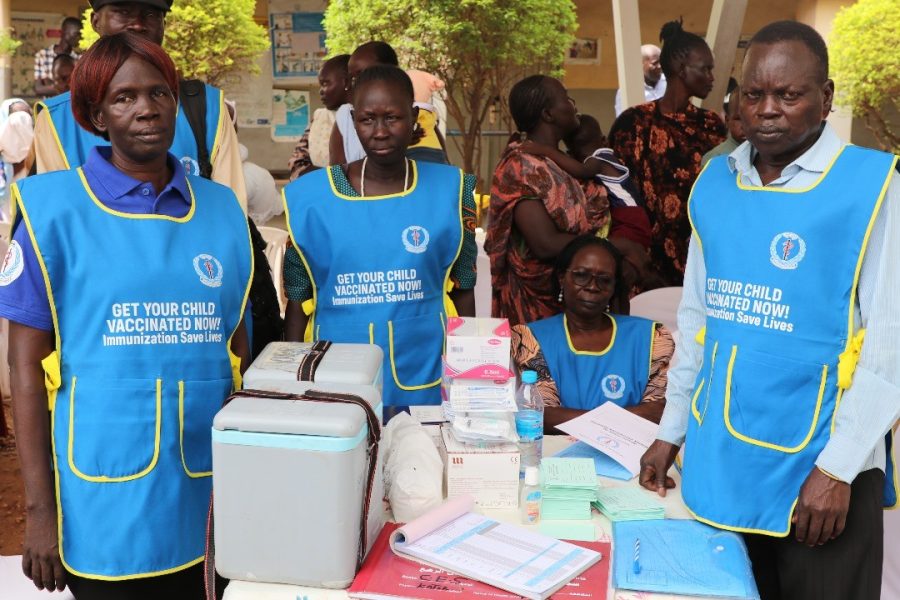
As the world marks over 50 years of the Expanded Programme on Immunization (EPI), South Sudan is strengthening its immunization efforts by introducing new vaccines (PCV, Rotavirus, MCV2) and launching of ‘Big Catch-Up’ campaign to reach children who missed vaccinations.
The drive is meant to address immunization gaps resulting from recent crises, targeting children under five years old who missed routine vaccinations between 2019 and 2024.
In a joint statement by World Health Organization, UNICEF and Ministry of Health, the campaign is focusing on 30 counties and aims to reach more than 146,000 “zero-dose” children – those who have not received any routine immunizations.
This month, from 24th to 30th, South Sudan is observing African Vaccination Week (AVW) with the theme “Immunization for All is humanly possible,” a period that aligns with the 50th anniversary of the global Expanded Programme on Immunization (EPI).
The commemoration reflects decades of progress in protecting millions from vaccine-preventable diseases.
Since joining the EPI in 1976, the country has steadily expanded its national immunization programme, adding vaccines like Pentavalent (2015), Inactivated Polio Vaccine (2016), and most recently, the malaria vaccine in 2024.
This year, the Ministry of Health backed by Gavi, the Vaccine Alliance is rolling out three more critical vaccines: Pneumococcal Conjugate Vaccine (PCV), Rotavirus vaccine, and a second dose of the Measles-Containing Vaccine (MCV2).
Undersecretary at the Ministry of Health Dr. Anin Ngot Mou stated that the government will continue to exert efforts to ensure access to vaccines.
“As we observe African Vaccination Week, we celebrate progress while delivering a vital message: your health is your responsibility,” said Dr Anin “While the government ensures access to vaccines, the choice to protect yourself and your family lies in your hands.”
Data from the WHO Regional Office for Africa indicates that AVW has reached over 180 million people across the continent with vaccines since 2011, alongside vitamin A supplementation and deworming initiatives.
In South Sudan, these efforts persist despite challenges. Disease outbreaks, mass displacement resulting from the conflict in Sudan, and climate-related flooding have tested the country’s fragile health system. Yet, immunization campaigns have continued across the nation, even in severely affected areas.
To address immunization gaps from recent crises, the government launched ‘Big Catch-Up’ initiative, aiming to reach over 146,000 unvaccinated children.
Dr. Humphrey Karamagi, World Health Organization Representative for South Sudan said, Vaccination remains the most cost-effective intervention to save lives.
“Vaccination remains the most cost-effective intervention to save lives,” said Dr. Humphrey. “Prioritizing pregnant women and children is key to building a safer, healthier population.”
UNICEF also reaffirmed its support.
“The introduction of new vaccines marks a major milestone in South Sudan’s efforts to ensure no child suffers from a vaccine-preventable disease,” said Noala Skinner, UNICEF Representative in South Sudan. “Every child, no matter where they live, deserves a chance to grow up healthy.”
As AVW is celebrated across the continent, South Sudan’s efforts underscore a broader message: universal immunization is not only possible—it’s essential.

